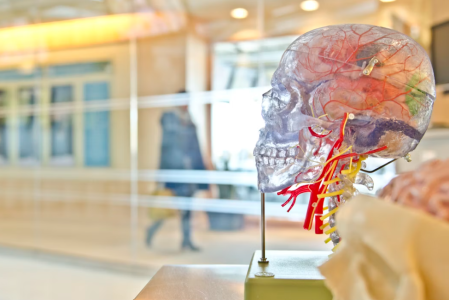Is this breakthrough drug the key to preventing—even reversing—dementia? Here’s what doctors say
- Replies 0
Disclaimer: The information provided in this article is for educational purposes only and is not intended as a substitute for professional medical advice, diagnosis, or treatment. Always consult your physician or other qualified healthcare providers with any questions you may have regarding a medical condition or before making any changes to your health regimen.
Dementia is a word that strikes fear into the hearts of many, especially as we age.
The idea of losing cherished memories, independence, and the very essence of who we are is daunting.
But what if science is on the verge of a breakthrough that could not only prevent dementia, but actually reverse its effects?
That’s the tantalizing hope raised by a new study out of a known medical school, and it’s got the medical world buzzing.
For decades, researchers have been searching for the root causes of Alzheimer’s disease—the most common form of dementia—and for treatments that do more than slow its relentless march.
Now, after a decade-long study involving both lab mice and human brain tissue, Harvard scientists believe they may have found a surprising culprit: lithium deficiency.
Yes, you read that right. Lithium—the same natural metal that’s been used for years to treat mood disorders—may play a crucial role in protecting our brains as we age.
According to Professor Bruce Yankner, a leading expert in genetics and neurology at Harvard’s Blavatnik Institute, this discovery could open the door to a whole new way of thinking about dementia prevention and treatment.
“The idea that lithium deficiency could be a cause of Alzheimer’s disease is new and suggests a different therapeutic approach,” Professor Yankner explains.
“What impresses me the most about lithium is the widespread effect it has on the various manifestations of Alzheimer’s. I really have not seen anything quite like it in all my years of working on this disease,” he added.
The research, published in the prestigious journal Nature, took a deep dive into the brains of people with early memory problems and those with Alzheimer’s.
The scientists found that lithium levels were significantly lower in these individuals compared to healthy brains.
Even more intriguing, the harmful amyloid proteins that build up in Alzheimer’s seem to trap lithium, making it less available to the brain.
Also read: The shocking truth behind women's increased risk of Alzheimer’s discovered—it's not what you think!
To test their theory, the team treated mice with lithium orotate—a form of lithium that can evade those pesky amyloid traps.
The results were nothing short of remarkable: the treatment reversed Alzheimer’s disease pathology, prevented brain cell damage, and even restored memory in the mice.
“My hope is that lithium will do something more fundamental than anti-amyloid or anti-tau therapies, not just lessening but reversing cognitive decline and improving patients’ lives,” says Professor Yankner.
Also read: This overlooked symptom might be an early sign of dementia, experts say
Before we all rush out to buy lithium supplements, it’s important to remember that these findings are still in the early stages.
While the results in mice are promising, human brains are far more complex. As Professor Yankner himself cautions, “You have to be careful about extrapolating from mouse models, and you never know until you try it in a controlled human clinical trial. But so far the results are very encouraging.”
Clinical trials in humans are the next crucial step. Until then, doctors and researchers urge caution.
Lithium, while naturally occurring, can be toxic in high doses and must be carefully monitored. It’s not something to self-prescribe or experiment with on your own.
Read next: Is your phone the key to detecting Parkinson’s or Dementia early? New tech now available across the US

Have you or a loved one been touched by dementia? What are your hopes for future treatments? Do you have questions about this new research, or about brain health in general?
Dementia is a word that strikes fear into the hearts of many, especially as we age.
The idea of losing cherished memories, independence, and the very essence of who we are is daunting.
But what if science is on the verge of a breakthrough that could not only prevent dementia, but actually reverse its effects?
That’s the tantalizing hope raised by a new study out of a known medical school, and it’s got the medical world buzzing.
For decades, researchers have been searching for the root causes of Alzheimer’s disease—the most common form of dementia—and for treatments that do more than slow its relentless march.
Now, after a decade-long study involving both lab mice and human brain tissue, Harvard scientists believe they may have found a surprising culprit: lithium deficiency.
Yes, you read that right. Lithium—the same natural metal that’s been used for years to treat mood disorders—may play a crucial role in protecting our brains as we age.
According to Professor Bruce Yankner, a leading expert in genetics and neurology at Harvard’s Blavatnik Institute, this discovery could open the door to a whole new way of thinking about dementia prevention and treatment.
“The idea that lithium deficiency could be a cause of Alzheimer’s disease is new and suggests a different therapeutic approach,” Professor Yankner explains.
“What impresses me the most about lithium is the widespread effect it has on the various manifestations of Alzheimer’s. I really have not seen anything quite like it in all my years of working on this disease,” he added.
The research, published in the prestigious journal Nature, took a deep dive into the brains of people with early memory problems and those with Alzheimer’s.
The scientists found that lithium levels were significantly lower in these individuals compared to healthy brains.
Even more intriguing, the harmful amyloid proteins that build up in Alzheimer’s seem to trap lithium, making it less available to the brain.
Also read: The shocking truth behind women's increased risk of Alzheimer’s discovered—it's not what you think!
To test their theory, the team treated mice with lithium orotate—a form of lithium that can evade those pesky amyloid traps.
The results were nothing short of remarkable: the treatment reversed Alzheimer’s disease pathology, prevented brain cell damage, and even restored memory in the mice.
“My hope is that lithium will do something more fundamental than anti-amyloid or anti-tau therapies, not just lessening but reversing cognitive decline and improving patients’ lives,” says Professor Yankner.
Also read: This overlooked symptom might be an early sign of dementia, experts say
Before we all rush out to buy lithium supplements, it’s important to remember that these findings are still in the early stages.
While the results in mice are promising, human brains are far more complex. As Professor Yankner himself cautions, “You have to be careful about extrapolating from mouse models, and you never know until you try it in a controlled human clinical trial. But so far the results are very encouraging.”
Clinical trials in humans are the next crucial step. Until then, doctors and researchers urge caution.
Lithium, while naturally occurring, can be toxic in high doses and must be carefully monitored. It’s not something to self-prescribe or experiment with on your own.
Read next: Is your phone the key to detecting Parkinson’s or Dementia early? New tech now available across the US
Key Takeaways
- A new study from Harvard Medical School suggests that lithium deficiency could be a cause of Alzheimer’s disease, opening up a new avenue for dementia treatment and prevention.
- Researchers found that lithium levels were significantly lower in people showing early memory problems and even lower again in those with Alzheimer’s, possibly due to the way amyloid proteins trap lithium.
- In lab mice, treatment with lithium orotate reversed Alzheimer’s disease changes in the brain, prevented cell damage, and restored memory, according to Professor Bruce Yankner.
- While the results are promising, experts caution that human clinical trials are still needed to confirm if lithium can safely and effectively prevent or reverse dementia in people.







